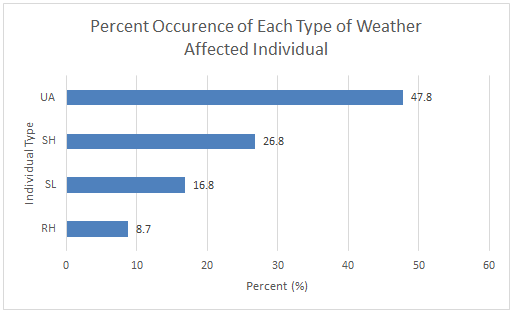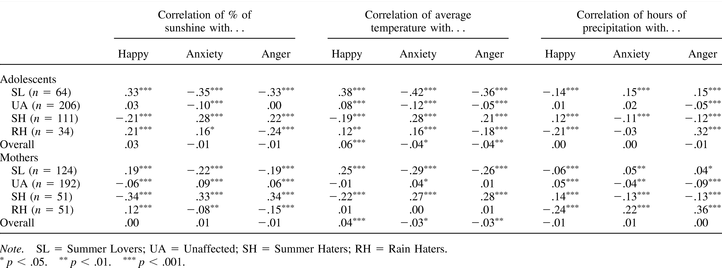You wake up in the morning and get dressed for the day. But the sky’s overcast and you can’t even get a glimpse of the sun. It’s already pouring outside and you utter to yourself, “This day’s off to a great start.”
Picture of a Rainy Day; Source: Max Pixel
Living in a city like Vancouver, where it rains for nearly half the year, you may start to wonder whether the weather actually has an effect on your mood. Is this merely a myth? Or does the idea have some merit to it?
From this paper published in 2011, the researchers came to the conclusion that it depends. Their results show that some people’s state of mind can be influenced by the weather. While for others, there was little to no effect.
They quantified this influence by focusing on three distinct mood indicators: happiness, anxiety, and anger. To measure this, the Internet version of the Electronic Mood Device, the Daily Mood Scale was used. Klimstra, et al. defined four groups of people – each affected differently by weather. They labelled these groups as: Summer Lovers (SL), Unaffected (UA), Summer Haters (SH), and Rain Haters (RH).

Graph Showing percentage of each type of individual; adapted from Klimstra, et al.
From their results, they found that nearly half of the individuals tested were in the UA group – meaning that the weather’s influence was minimal. As suggested by the writers of the paper, this could explain why previous studies concluded that the weather had an insignificant effect. However, the rest of the participants displayed changes in happiness, anxiety, and anger in the weather conditions that were tested – weather did have an effect on them.

Correlation results from their study. Source: Klimstra, et al.
The table above shows the correlation between sunshine, temperature, and precipitation and their effects on the mood indicators. Positive numbers indicate a positive correlation, whereas negative numbers indicate the opposite. The correlation ranges from -1 to +1; a number closer to the extremities (±1) indicates a stronger link. The number of people (of each group) is indicated by n. The probability value (p) represents how statistically significant the results are – the smaller the p-value, the higher the level of significance.

Summer day in Biei, Hokkaido, Japan. Source: Reginald Pentinio
You can see why they decided on these labels for each group. For example, individuals of the Summer Lover group were characterized as being happier, being less anxious, and being less angry on higher temperature and sunny days. However, precipitation caused reduced levels of happiness and increased levels of anxiety and anger.
It’s safe to say that the weather does have an effect on at least half of us.
This blog post’s focus was mainly on the study by Dr. Klimstra. The following video mentions some other ways the weather can affect us.

3 responses to “Can Weather Affect Our Moods?”